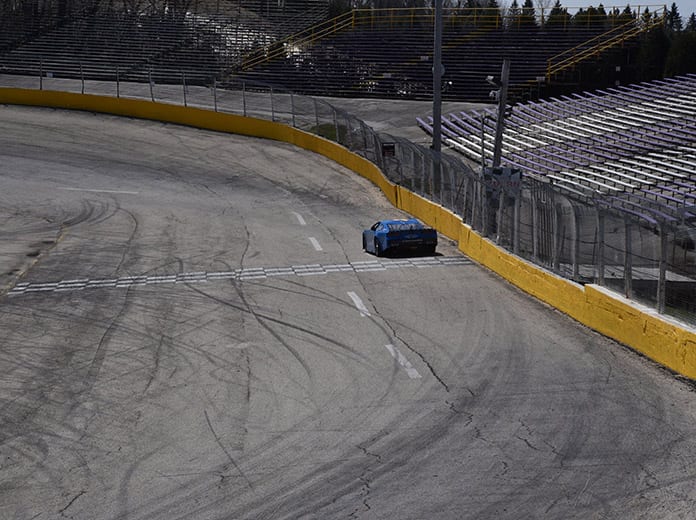SLINGER, Wis. – Sunday was supposed to be the start of the 73rd season of racing at Slinger Super Speedway.
Instead, the stands and parking lots were empty and there were no smells of fresh French fries and burgers hot off the grills. To make matters worse, the weather was perfect – mostly sunny with temperatures in the 60s.
As the world works through the COVID-19 public health crisis, many are doing what they can to pass the time and hope for a return to some kind of normalcy.
For local short-track race car drivers, the challenges of waiting are real. They are stuck in the middle not knowing when the season will start or if it’ll be put on hold until 2021. They are unsure how to approach and pitch sponsors. As is often the case in short-track racing, most sponsors tend to be small business owners, an area that has been hit hard by the pandemic.
“The biggest challenge for me is trying to find sponsor money,” said James Swan, who has won 13 championships across the ASA Midwest Tour Truck Series, the Mid-American Stock Car Series, Lake Geneva Raceway, Madison Int’l Speedway and Slinger. “You don’t want to accept sponsor money at this point in the year not knowing if or when we’ll get to race this year. We’re kind of reluctant on that. But we want to be able to reserve that money and have it in case we do get to go racing.
“So you can’t not ask for it and not try to get it but you don’t want to try and get it because you don’t know if you’ll be able to use it.”
Paul Pokorski, who races 360 sprint cars at Plymouth (Wis.) Dirt Track, echoes a similar problem. One of his challenges, he said, revolves around money sponsors have already put toward a program for this season.
So if the season is partially run or not at all, what happens with the money? Refund it or see if it’ll carry into 2021? Will businesses have the money to do either?
Pokorski also said another challenge is replacing parts that need to be ordered. Six months ago, Pokorski said, there wasn’t an urge to get a part. Now that the race season is here – albeit in a holding pattern – the urge goes up. The problem is many manufacturers aren’t open because of the pandemic and those parts may not arrive at race shops when needed.
Outside of finances, drivers are doing what they can to keep their skills, mindsets and reflexes at a competitive level so they can be ready if and when the call comes that racing can resume.
In most cases that means taking their cars to the local race track and turning some laps. In the last two weeks, Slinger has had a decent flow of drivers from several divisions hit the track. By doing that, the track is at least collecting some income while the gates to the public remain closed.
“We all need a place to race,” Apel said. “If, for whatever reason we don’t get to race this year, it’s going to be extremely hard for the track to make it because it’s a whole year of costs with no income coming in.
“Racing is a little different than typical businesses because you only have 20 days of the year to make money and those are the days we race. If you take away half the season or a whole season come September there’s no racing going on, there’s no revenue coming in for the track.”
Click below to continue reading.
